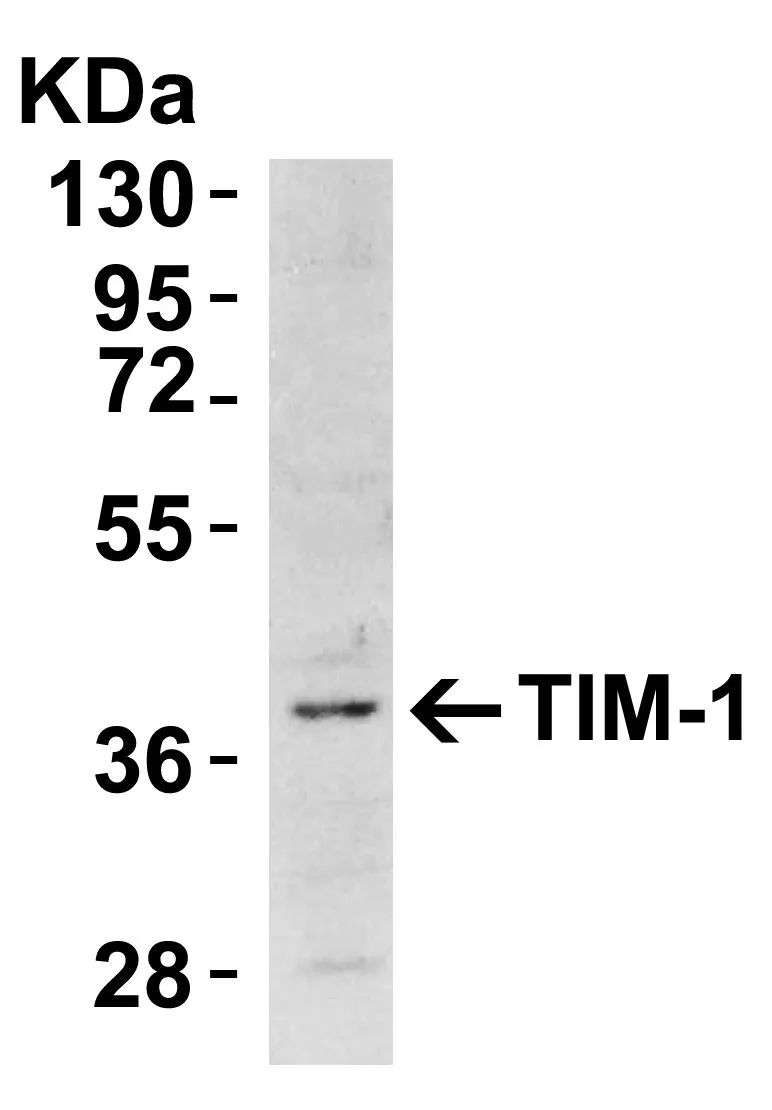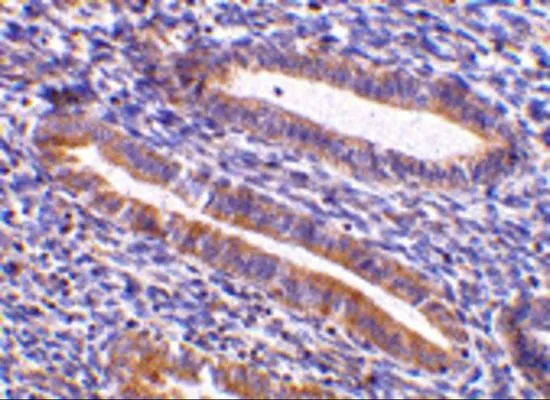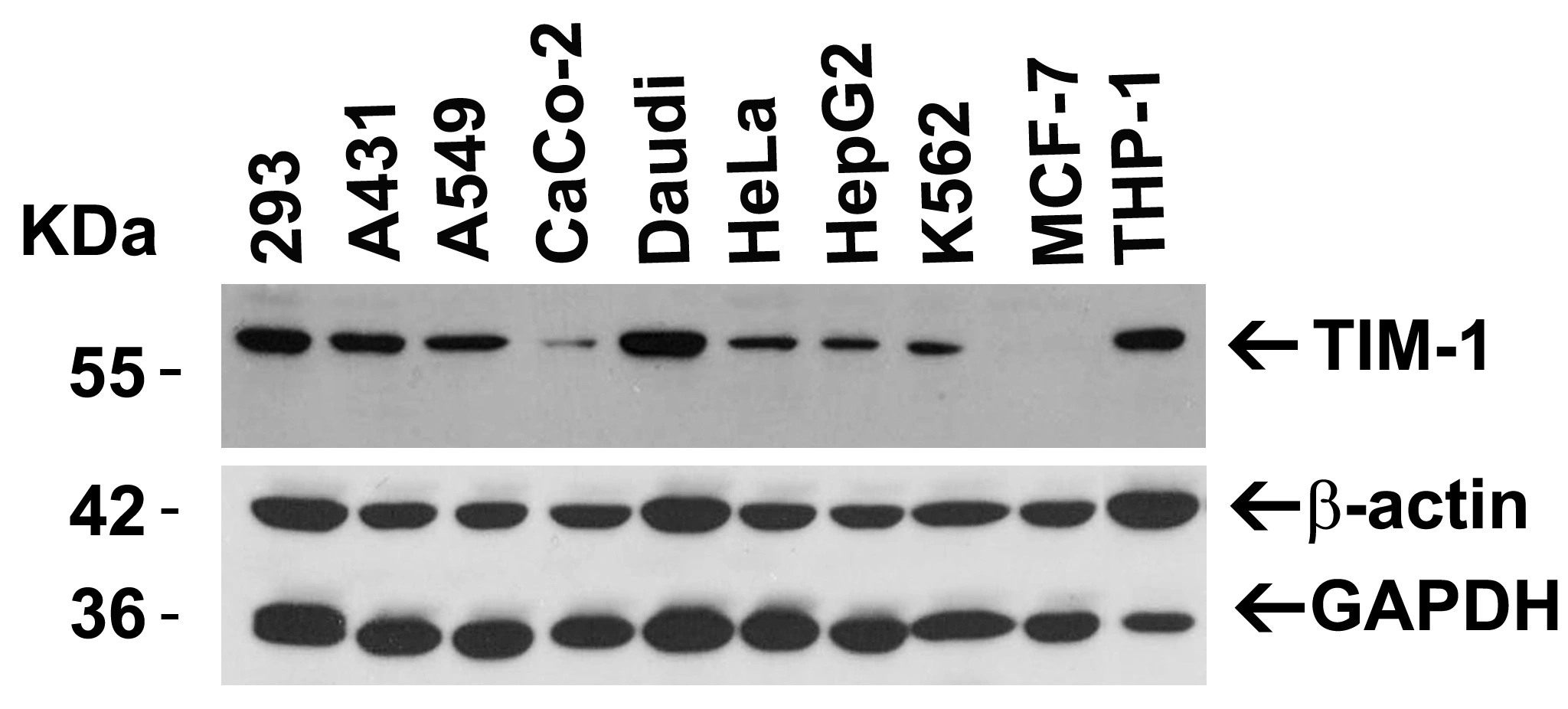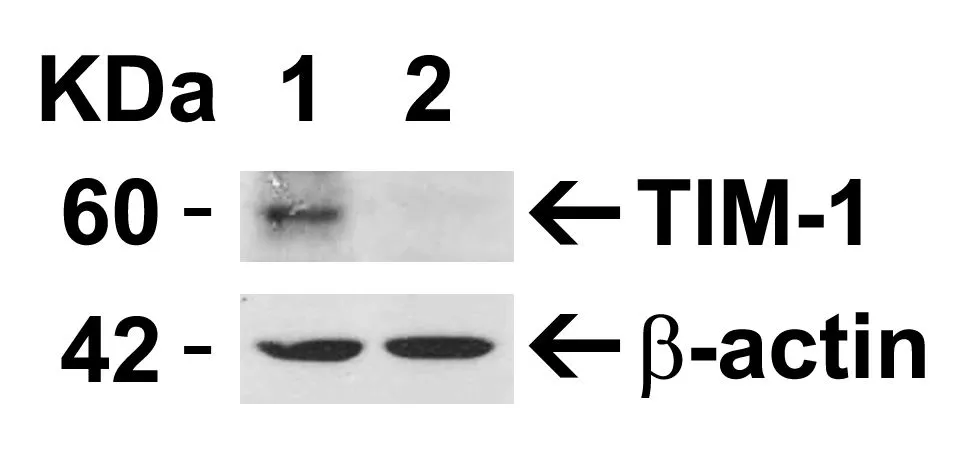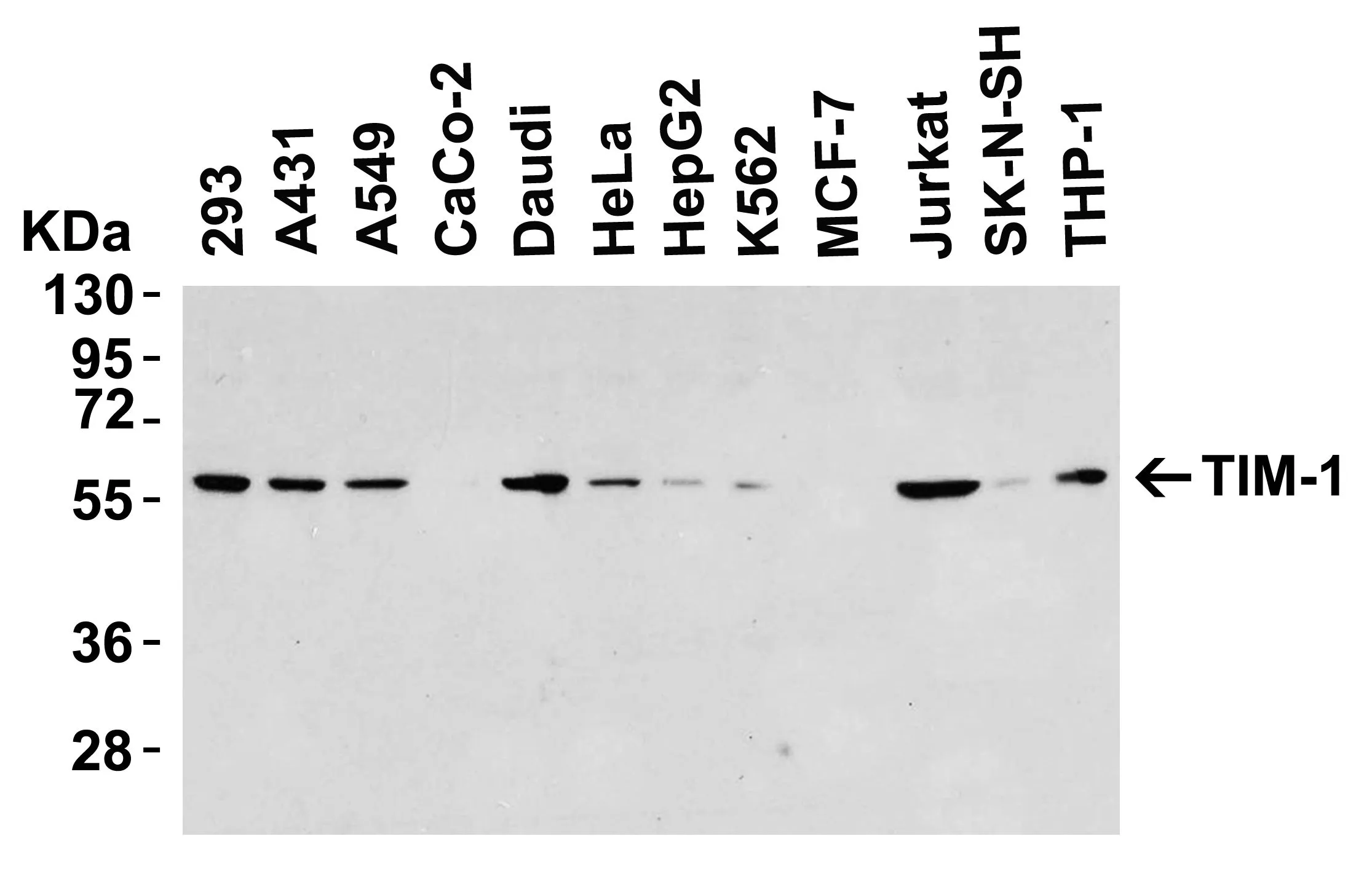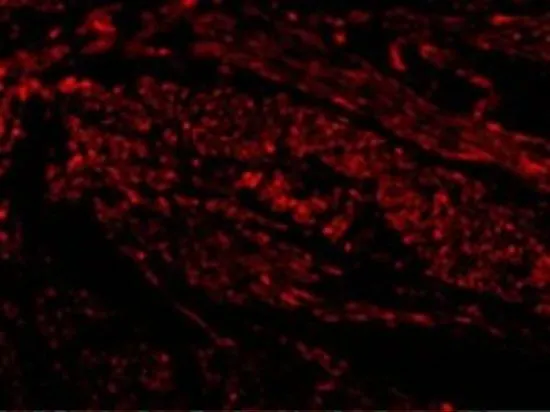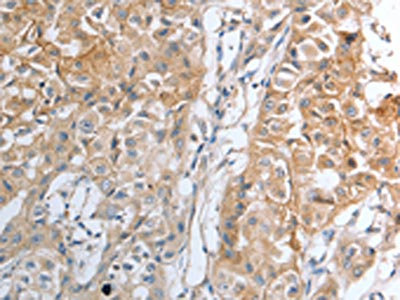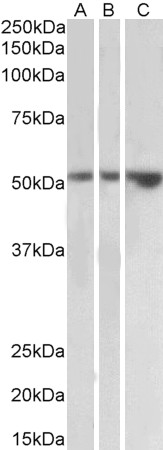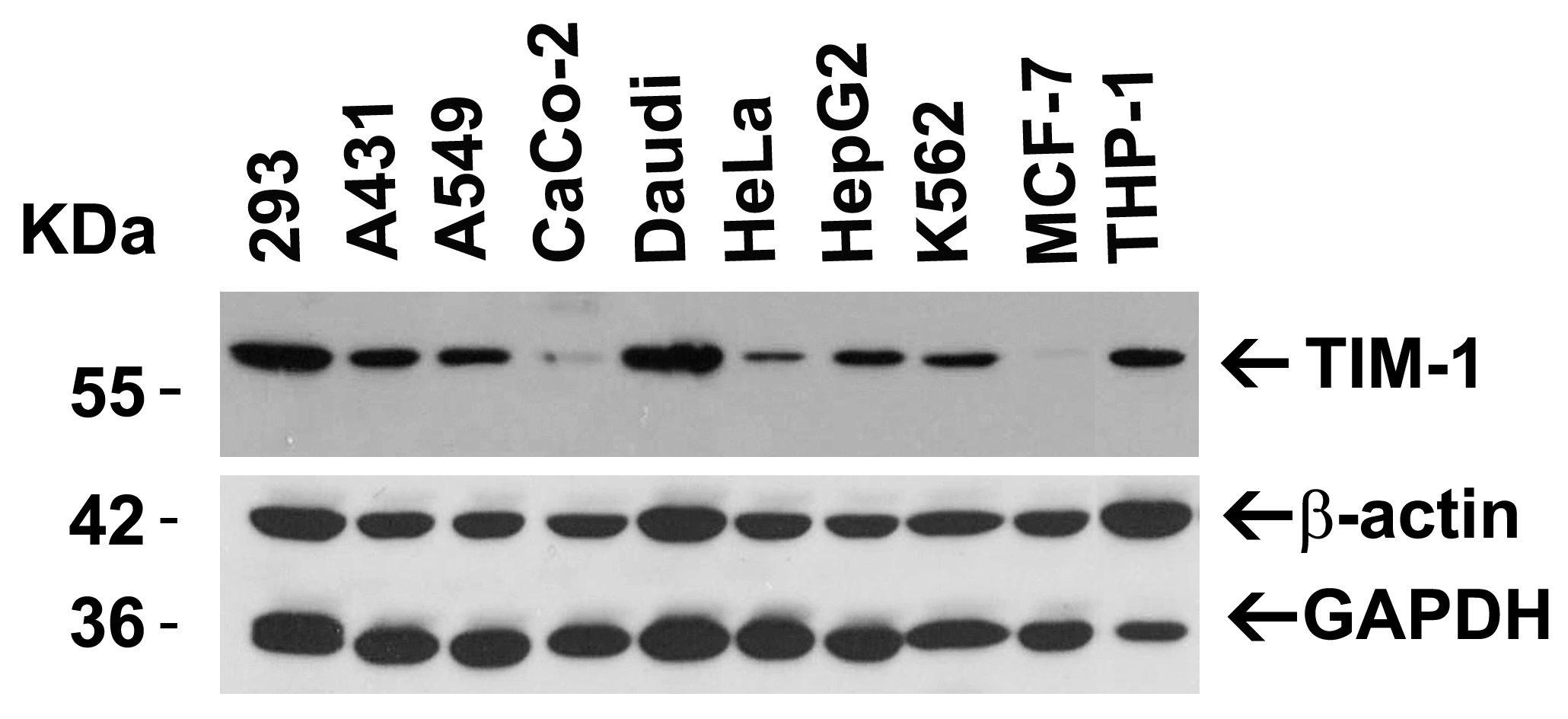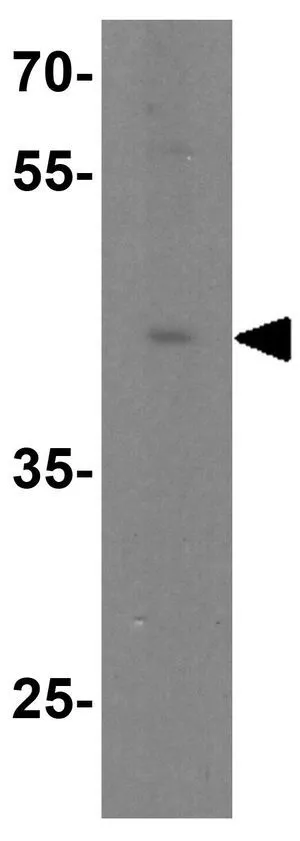
WB analysis of 3T3 cell lysate using GTX85068 TIM-1 antibody. Working concentration : 1 μg/ml
TIM-1 antibody
GTX85068
ApplicationsWestern Blot, ELISA, ImmunoHistoChemistry, ImmunoHistoChemistry Paraffin
Product group Antibodies
ReactivityHuman, Mouse
TargetHAVCR1
Overview
- SupplierGeneTex
- Product NameTIM-1 antibody
- Delivery Days Customer9
- Application Supplier NoteWB: 1 microg/mL. IHC-P: 10 microg/mL. *Optimal dilutions/concentrations should be determined by the researcher.Not tested in other applications.
- ApplicationsWestern Blot, ELISA, ImmunoHistoChemistry, ImmunoHistoChemistry Paraffin
- CertificationResearch Use Only
- ClonalityPolyclonal
- Concentration1 mg/ml
- ConjugateUnconjugated
- Gene ID26762
- Target nameHAVCR1
- Target descriptionhepatitis A virus cellular receptor 1
- Target synonymsCD365, HAVCR, HAVCR-1, KIM-1, KIM1, TIM, TIM-1, TIM1, TIMD-1, TIMD1, hepatitis A virus cellular receptor 1, T cell immunoglobin domain and mucin domain protein 1, T-cell immunoglobulin mucin family member 1, T-cell immunoglobulin mucin receptor 1, T-cell membrane protein 1, kidney injury molecule 1
- HostRabbit
- IsotypeIgG
- Protein IDQ96D42
- Protein NameHepatitis A virus cellular receptor 1
- Scientific DescriptionThe human form of TIM-1 was initially discovered as a membrane glycoprotein through which the hepatitis A virus can gain entry into a cell. It was also identified as kidney injury molecule 1 (Kim-1), a predicted adhesion molecule that is upregulated on the surfaces of kidney epithelia. It is also expressed on T helper 2 (Th2) cells of the immune system, and following the binding of its natural ligand TIM-4, stimulates T cell expansion and cytokine production in response to viral challenge. It has been suggested that hyperactivation of TIM-1 leads to an increased level of Th2 responsiveness and asthma susceptibility, and antibodies to TIM-1 may therefore be a novel approach to treating asthma.
- ReactivityHuman, Mouse
- Storage Instruction-20°C or -80°C,2°C to 8°C
- UNSPSC41116161
References
- Korean red ginseng attenuates hyperglycemia-induced renal inflammation and fibrosis via accelerated autophagy and protects against diabetic kidney disease. Karunasagara S et al., 2020 May 23, J EthnopharmacolRead this paper

